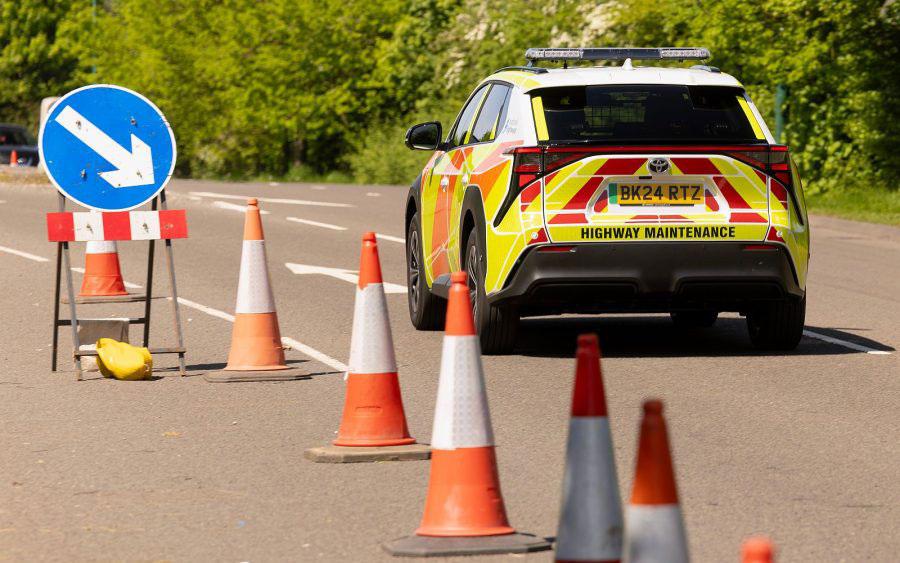With local authorities under scrutiny over their participation in national net zero ambitions and many under financial pressure, the use of grey fleet is no longer practical or sensible. But how can it be tackled? James Lancaster, Chair of the Urban Mobility Partnership, shares his views
Grey fleet vehicles have been widely used in the public sector for a long time. The policy of allowing employees to use their own privately owned vehicles for business travel and be reimbursed for the miles they drive has been seen as simple and convenient by organisations of all sizes. However, with local authorities under scrutiny over supporting national net zero ambitions and many under financial pressure, the use of grey fleet is no longer practical or sensible. Unfortunately, the use of grey fleet has become part and parcel of public sector bodies’ business practice and is rarely addressed or seen as a major issue.
With privately owned vehicles on UK roads having an average age of 8.5 years, the use of grey fleet flies in the face of national and local policy objectives to decarbonise transport. Given that a number of areas across the UK are having to implement clean air zones due to poor air quality, it is remarkable that the public sector continues to incentivise the use of some of the most polluting forms of transport. Yet there are reasons behind this. The way mileage reimbursement works, it is often the case that the use of a privately owned vehicle for business travel is not just due for convenience but also a financial incentive for many employees. Despite the Approved Mileage Allowance Payments (AMAP) system stating that employees should be reimbursed up to 45p per mile for grey fleet usage, many public sector bodies have been found to pay even more than the suggested rate. There is almost no justification for this, but it does act as a further incentive for employees to use their own vehicle for business travel.
In this regard, there needs to be a change in mindset and an establishment of environmental concerns as a priority for local authorities. There must be a move away from the mentality where the use of grey fleet is effectively used as a salary bump, as this only serves to make senior management and staff reluctant to move to more sustainable and cost-effective modes of travel.
Environmental concerns should be at the forefront of public sector minds and addressing grey fleet should be no different. Analysis conducted by the Urban Mobility Partnership found that across 400 councils in Great Britain over 200 million miles were conducted using grey fleet vehicles. Some local authorities conducting more than 10 million miles using grey fleet vehicles. Given that some of this data covers the introduction of working from home as a result of Covid-19,this is a staggeringly high number of miles to have been conducted by some of the most polluting vehicles on the road.
Solutions to tackle grey fleet
There are solutions to address grey fleet and alternatives to the use of these vehicles. Now is an opportune moment to effectively address business travel practice. We have had a year where, for many public sector organisations, business travel will have been limited due to the Covid-19 pandemic. Whilst the rapid change in many working cultures, leading to increased working from home and the widespread use of video conferencing, will have undoubtedly changed many business practices for the long term, there will inevitably always be some need for business travel, particularly in public services.
With the successful vaccination programme, there is a sense amongst everyone that we will begin to return to our normal lives and this will inevitably include business travel. Therefore, this is the moment for public sector bodies to take a real lead on moving to sustainable transport solutions and ensuring that there is not a return to grey fleet usage. Public sector bodies can offer a clear example to the wider population that it is safe to return to public and shared transport and there needs to be clear messages from national government in this regard. If we allow people to return to relying on private car use for business travel, it will inevitably entrench these behaviours and will become even more challenging to address. As a result, we will fail to improve air quality across the UK and reach wider policy objectives.
With new administrations after the local and combined authority elections, grey fleet reduction should be a key part of clean air and transport plans of all local and combined authorities, and they should work with all public sector bodies within their area to ensure they are also seeking to tackle grey fleet. Public sector bodies need to work with operators to develop solutions which make use of all types of shared and public transport including public transport, bike hire and bike share and daily rental and car club schemes.
It has been shown that utilising just one of these types of solutions can have a significant impact on carbon emissions. A partnership between Enterprise Car Club and Highlands Council to move away from grey fleet use had a dramatic impact on the council’s carbon emissions. Emissions through grey fleet use were estimated to exceed 2,000 tonnes of carbon dioxide every year and, given that the council was unable to provide specific data on the types of vehicles used for business travel, the true levels of emissions could have been much higher. The change in practice to using new cleaner and more efficient Enterprise Car Club vehicles for necessary business travel led to a reduction of more than 825,000 in miles conducted by council employees. The carbon footprint from business travel was also reduced by approximately 377 tonnes of carbon dioxide. This represents a reduction in the council’s environmental impact of 19 per cent.
Getting all stakeholders onboard
This dramatic change in policy and its subsequent environmental benefits demonstrates that it is possible to find alternatives to grey fleet in any situation. But in order to achieve this, it is vital that there is a commitment to do so from all stakeholders and collaboration between operators and public sector bodies. Beyond addressing the emissions produced by grey fleet travel, changing business travel policies and ensuring employees make use of shared and public transport will ultimately have an impact on the way employees commute to and from work and may in turn change the way they move around in their own time.
As we come out of Covid-19, there is a real opportunity to change the way we move around as a society. The pandemic has seen positive trends, such as the uptake of active travel, but unless we broadly incentivise shared transport solutions, there is a real risk that people will return to using privately owned vehicles. Addressing grey fleet policies is a fundamental starting point for the public sector to demonstrate leadership in reducing emissions and supporting net zero ambitions.






